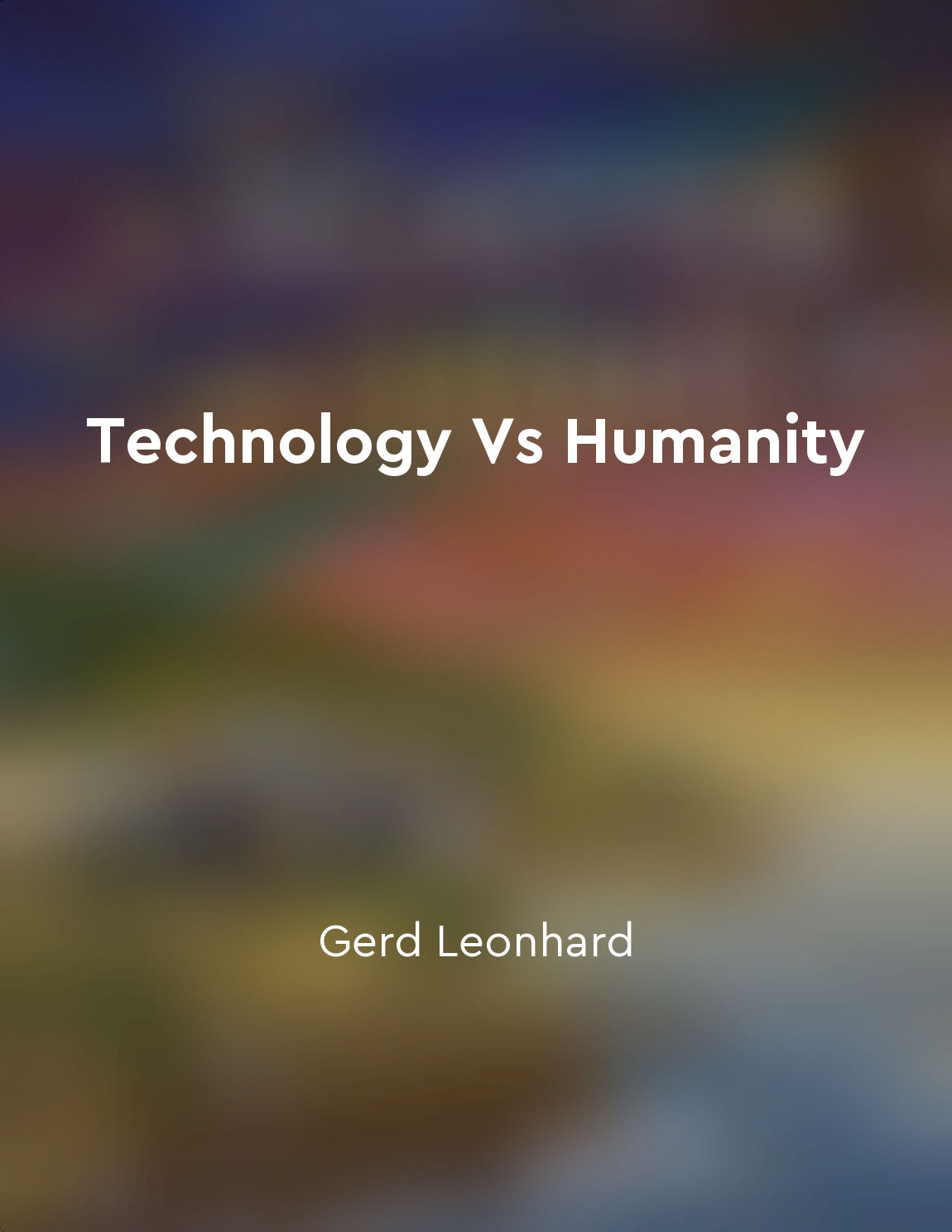AI can help solve global challenges and improve quality of life from "summary" of The Sentient Machine by Amir Husain
The potential for artificial intelligence to address some of the world's most pressing problems is a topic of great interest and debate. One school of thought envisions AI as a powerful tool that can be harnessed to tackle global challenges and enhance the quality of human life. This perspective is grounded in the belief that AI has the capacity to augment human intelligence and creativity in ways that were previously unimaginable. By leveraging the capabilities of AI systems, it is possible to develop innovative solutions to complex problems in areas such as healthcare, climate change, education, and poverty alleviation. AI can help revolutionize the healthcare industry by enabling more accurate diagnoses, personalized treatment plans, and improved patient outcomes. By analyzing vast amounts of medical data and identifying patterns that are beyond human perception, AI systems can assist healthcare professionals in making informed decisions and delivering better care to patients. In addition, AI-powered technologies can facilitate remote monitoring of patients, enhance surgical precision, and optimize drug discovery processes, thus revolutionizing the healthcare landscape and improving overall public health. When it comes to addressing climate change, AI can play a crucial role in monitoring environmental parameters, predicting natural disasters, and designing sustainable solutions. By analyzing data from satellites, sensors, and other sources, AI algorithms can generate insights that help policymakers and researchers understand the dynamics of climate change and develop effective mitigation strategies. Moreover, AI can optimize energy consumption, reduce carbon emissions, and promote the adoption of renewable energy sources, thereby contributing to a more sustainable and environmentally friendly world. In the realm of education, AI has the potential to revolutionize learning processes, personalize instruction, and foster student engagement. By leveraging adaptive learning technologies, AI systems can tailor educational content to meet the unique needs and preferences of individual students, ensuring that each learner receives a customized and effective learning experience. Furthermore, AI-powered tools can automate administrative tasks, provide real-time feedback to educators, and facilitate collaborative learning environments, thus enhancing the quality of education and empowering students to reach their full potential. In the fight against poverty and inequality, AI can empower marginalized communities, enhance economic opportunities, and promote social inclusion. By enabling access to financial services, job opportunities, and essential resources, AI technologies can help lift people out of poverty, foster economic growth, and reduce disparities in wealth and income. Moreover, AI-driven initiatives can support humanitarian efforts, streamline aid distribution processes, and address social challenges such as hunger, homelessness, and healthcare disparities, thereby contributing to a more equitable and just society.Similar Posts
Time begins at Big Bang
At the moment of the Big Bang, the universe began. Not just space, but time itself. This might be hard to wrap our heads around...
Education is evolving with the integration of smart machines
The integration of smart machines into education is revolutionizing the way students learn and teachers teach. Traditional clas...
Human values must guide AI development
The fundamental idea that underpins the entire field of AI safety is the need for human values to guide the development of arti...
The risks and rewards of AI must be carefully considered
When it comes to artificial intelligence (AI), it is crucial to weigh the potential dangers and benefits that come with this ra...
AI systems should understand human intentions
AI systems must be able to understand human intentions in order to work effectively with us. This understanding is crucial beca...

The future is uncertain but within our control
As we stand on the brink of a future that seems both thrilling and daunting, one thing is certain: uncertainty looms large. The...
The implications of AI on warfare and defense are complex
The impact of artificial intelligence on warfare and defense is a multifaceted issue that presents a myriad of challenges and o...
Experts debate the potential dangers of AI
The potential dangers of artificial intelligence (AI) have become a topic of intense debate among experts in the field. While s...

